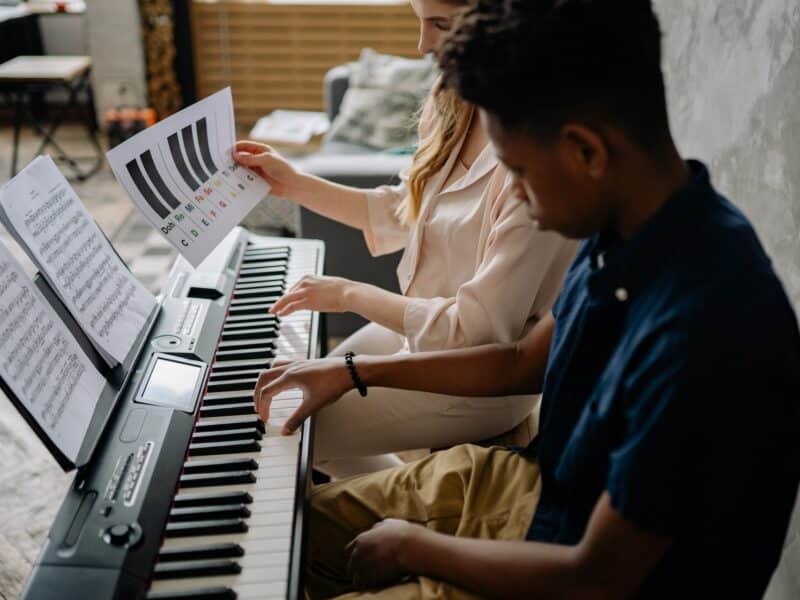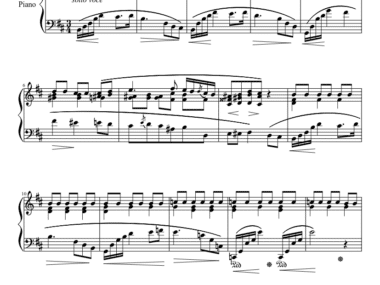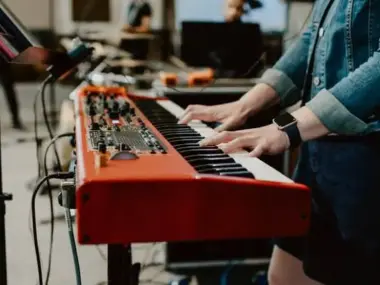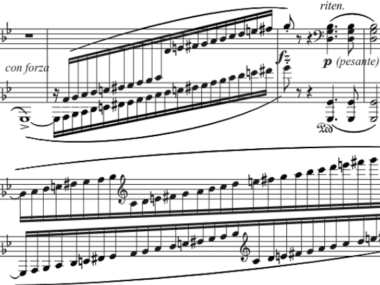*Keyboardkraze now has a nearly 24/7 chat service directly with me should you have any questions regarding keyboard/plugin choices! This is connected directly to me and it is not AI.
Table of Contents
Are you a piano teacher looking to expand your student base and showcase your teaching skills? Creating a professional website is the perfect way to achieve these goals. A website can help you promote lessons, share qualifications, and update your students on upcoming performances.
This article will guide you through building a piano teacher website, from choosing a template to utilizing marketing tools to grow your online presence.
Key Takeaways
– A professional website is necessary to advertise piano lessons, workshops, and performances.
– Choosing a simple template ensures mobile compatibility for the homepage design.
– The website should have About, Calendar, Lessons, Store, and Contact pages.
– Updating website content often keeps it appealing and professional to potential students.
-Use SEO to build your customer base
How To Build A Piano Teacher Website
To start building a piano teacher website, you will want to use WordPress as it’s the most user-friendly CMS.
Begin by choosing a simple template for the homepage that ensures mobile compatibility. The homepage should have a header image, call-to-action, and information about the teacher and services.
The About page should list qualifications, education, achievements, and teaching philosophy with photos of the teacher at the piano.
A Calendar page can be created for upcoming dates, including important dates, student recitals, and lesson schedules.
The Lessons page should describe lesson types, age ranges, skill levels, teaching styles, group/private lessons, and fees.
A Store page can sell music lessons, sheet music, and recorded piano albums and accept payments for clinics, workshops, and classes.
A Contact page should include a clear form, email address, and phone number for potential students to reach out.
Homepage Design
Creating a professional homepage for your piano teaching services involves choosing a simple template for your website. This ensures that your website is mobile-friendly and easy to navigate.
A header image, call-to-action, and information about you and your services should be included on the homepage. The header image should be visually appealing and relevant to your teaching services. The call-to-action should encourage potential students to sign up for lessons or contact you for more information.
Information about your qualifications, teaching style, and lesson types should also be included on the homepage to give potential students an idea of your offer.
In addition to the homepage design, it’s essential to keep your website content up-to-date and engaging. This can include adding new blog posts, updating your calendar with upcoming events, and offering online lessons or tutorials subscriptions.
About Page – Talk About Piano Experience
When potential students visit your website, they want to know more about you as a piano teacher. So, make sure your About page showcases your piano experience and qualifications. Here are four important things to include:
1. Your education: Mention your degrees or certifications in piano performance and education.
2. Your achievements: Highlight any awards, honors, or competitions you’ve won in the field of piano.
3. Your teaching experience: List the number of years you’ve been teaching, and any notable institutions or organizations you’ve taught at.
4. Your teaching philosophy: Explain your approach to teaching piano, including your goals for your students and your methods for achieving them.
By including these details, you’ll demonstrate to potential students that you’re a qualified and experienced piano teacher and take your craft seriously. It’ll also help them understand your teaching style and approach, which can be an important factor in their decision to study with you.
Calendar Page
Highlight important dates and upcoming performances on your Calendar page, allowing potential students to see the full range of your musical expertise. This page can serve as a useful tool for scheduling and booking lessons, as well as offering a glimpse into your experience and dedication to music.
Be sure to include any upcoming performances, workshops, recitals, and your availability for lessons. Consider adding multiple calendars, such as one for your personal schedule and one for your students’ lesson schedules, to keep everything organized.
Lesson Format
Remember to consider your preferred lesson format when designing your website. Whether you enjoy teaching one-on-one or in a group setting, it’s important to communicate this information to potential students clearly.
Create a dedicated page for your lessons where you can describe your teaching style, age range, skill level, and other important information that potential students need to know. You can also include information about whether you offer private or group lessons and how much you charge for each type of lesson.
When describing your preferred lesson format, highlight the benefits of your teaching style and how it can help students achieve their goals.
For example, if you teach in a group setting, you can emphasize how students can learn from each other and gain confidence by playing with others.
Pianote does this extremely well, and I recommend checking their site out.
Paypage
Setting up a pay page on your professional music website can make it easy and convenient for students to purchase lessons and other services, giving them a sense of security and peace of mind. By offering this feature, you can streamline the payment process and avoid any confusion or delays in receiving payment.
SEO For Marketing Your Website
To effectively market your piano teacher website, you need to determine your target audience – local or global. This will help you tailor your content and SEO strategies to reach your ideal students.
Creating content that brings in new clients is also crucial. For example, you can write blog posts, record videos, and gather testimonials. By focusing on your target audience and creating compelling content, you can attract more students and grow your piano teaching business.
I have used national and local SEO to grow my website to 250k monthly readers. I highly recommend working with a local SEO firm to help boost your rankings.
I regularly consult with a local search engine optimization firm in Milwaukee to grow an online presence.
Determine Your Target Audience – Local Or Global?
Deciding whether your target audience for your piano teacher website is local or global will significantly impact the design and content of your site.
If you’re primarily looking to attract students from your local area, your website should promote your physical location, such as the city or neighborhood you’re in. Include details about your local community and any partnerships or collaborations you have with nearby businesses or organizations.
Create Content That Brings In New Clients
Attracting new clients to your piano teaching business is about creating engaging content that connects with potential students on a personal level. Your website content should showcase your teaching skills and experience, your passion for music, and your desire to help students achieve their goals.
I worked with a digital marketing company in Milwaukee to figure out the best strategy for rolling out content.
Frequently Asked Questions
- What are some effective strategies for promoting a piano teacher website beyond just building it?
To effectively promote your piano teacher website, consider leveraging social media platforms like Facebook and Instagram to share information about your services, upcoming performances, and student successes.
Collaborate with other music teachers or local businesses by offering discounts or hosting joint events.
Utilize email marketing campaigns to keep your current and potential students informed about news and updates.
Additionally, consider offering trial lessons or hosting free workshops to attract new students.
- How can a piano teacher’s website incorporate virtual or online lessons for students who cannot attend in-person lessons?
To incorporate virtual or online lessons for students who cannot attend in person, first determine what platform you’ll use for video conferencing and ensure you and your student can access the necessary technology.
Consider offering various virtual lesson options, such as one-on-one sessions, group classes, or pre-recorded lessons.
Wrapping Up
Creating a piano website is essential for instructors and piano enthusiasts who want to reach a broader audience. Leave a comment with any questions you may have.








2 comments
Hey Chris
I’ve got a 61 Roland Juno synth and I’ve got my eye on an 88 key keyboard piano.
What other pieces of hardware do you think would be useful for performance work?
I racked up five Soundcloud referrals from your site. Idk how. Did you link my music at some point? I’m /erin-susan-jennings/ on soundcloud